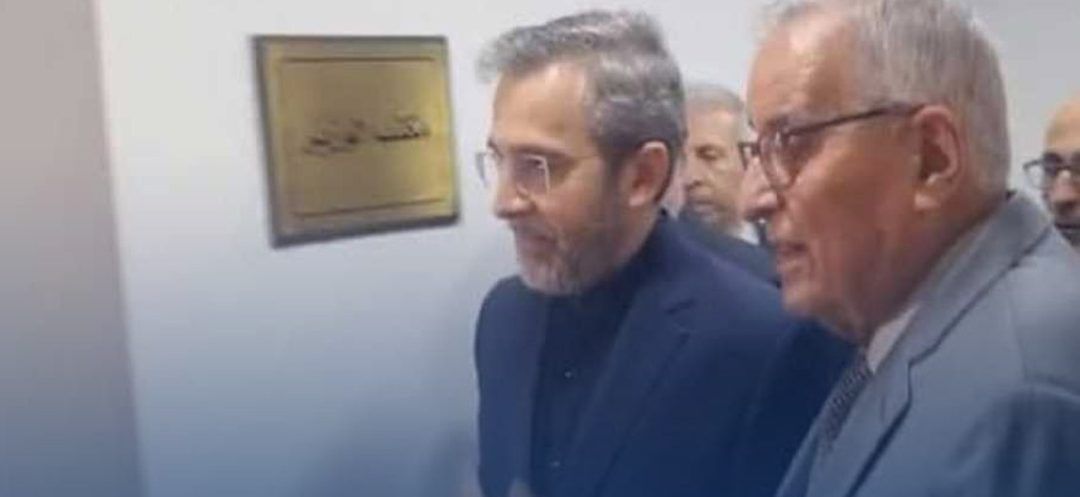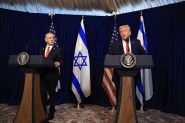
During a visit to Lebanon, Iran’s acting Foreign Minister, Ali Bagheri Kani, proposed an extraordinary meeting of OIC foreign ministers.
Iran’s acting Foreign Minister, Ali Bagheri Kani, praised the significant impact of his country’s policies in the region, particularly in Lebanon, emphasizing that “the close relations between the Islamic Republic of Iran and the Lebanese Republic are pivotal for regional stability.”
He asserted that “resistance forms the cornerstone of this stability,” amidst the turmoil in southern Lebanon due to Tehran's decision, facilitated by Lebanese intermediaries, to support Hamas in its war with Israel.
At a joint press conference with his Lebanese counterpart, Abdallah Bou Habib, Bagheri Kani claimed that “the Islamic Republic of Iran has always aimed to support the stability, safety, security and progress of Lebanon.” This statement is widely considered misleading given that Iran, through Hezbollah, has significantly weakened Lebanon, leaving its institutions in a fragile state.
This visit marks Bagheri Kani’s first trip to Lebanon since being appointed as the interim head of Iranian diplomacy, following the death of his predecessor, Hossein Amir-Abdollahian, and Iranian President Ebrahim Raisi in a helicopter crash on May 19.
The discussions between the two diplomats focused on the conflicts in South Lebanon and Gaza. Bou Habib reiterated Lebanon's position of “rejecting war” and called for “lasting solutions aimed at restoring calm and stability in the South,” particularly through “the full implementation of UN Security Council Resolution 1701.”
Regarding Gaza, Bou Habib highlighted “a convergence of views on the dangers resulting from the war in Gaza and the crimes committed against the Palestinians, which compromise the chances of a just and comprehensive peace in the region.” In response, Bagheri Kani proposed a joint initiative involving regional countries, particularly Islamic nations, to “hold an extraordinary meeting of the foreign ministers of the Organization of Islamic Cooperation (OIC).” He believes this “collective measure” would enable a “common movement to confront Israeli aggression and protect the Palestinian people, particularly at Rafah.”
Bagheri Kani also met with Lebanon’s caretaker Prime Minister, Najib Mikati, at the Grand Serail, and with the head of Parliament, Nabih Berri, at Ain al-Tineh.
Additionally, he is scheduled to meet with Hezbollah leader Hassan Nasrallah.
Iran’s acting Foreign Minister, Ali Bagheri Kani, praised the significant impact of his country’s policies in the region, particularly in Lebanon, emphasizing that “the close relations between the Islamic Republic of Iran and the Lebanese Republic are pivotal for regional stability.”
He asserted that “resistance forms the cornerstone of this stability,” amidst the turmoil in southern Lebanon due to Tehran's decision, facilitated by Lebanese intermediaries, to support Hamas in its war with Israel.
At a joint press conference with his Lebanese counterpart, Abdallah Bou Habib, Bagheri Kani claimed that “the Islamic Republic of Iran has always aimed to support the stability, safety, security and progress of Lebanon.” This statement is widely considered misleading given that Iran, through Hezbollah, has significantly weakened Lebanon, leaving its institutions in a fragile state.
This visit marks Bagheri Kani’s first trip to Lebanon since being appointed as the interim head of Iranian diplomacy, following the death of his predecessor, Hossein Amir-Abdollahian, and Iranian President Ebrahim Raisi in a helicopter crash on May 19.
The discussions between the two diplomats focused on the conflicts in South Lebanon and Gaza. Bou Habib reiterated Lebanon's position of “rejecting war” and called for “lasting solutions aimed at restoring calm and stability in the South,” particularly through “the full implementation of UN Security Council Resolution 1701.”
Regarding Gaza, Bou Habib highlighted “a convergence of views on the dangers resulting from the war in Gaza and the crimes committed against the Palestinians, which compromise the chances of a just and comprehensive peace in the region.” In response, Bagheri Kani proposed a joint initiative involving regional countries, particularly Islamic nations, to “hold an extraordinary meeting of the foreign ministers of the Organization of Islamic Cooperation (OIC).” He believes this “collective measure” would enable a “common movement to confront Israeli aggression and protect the Palestinian people, particularly at Rafah.”
Bagheri Kani also met with Lebanon’s caretaker Prime Minister, Najib Mikati, at the Grand Serail, and with the head of Parliament, Nabih Berri, at Ain al-Tineh.
Additionally, he is scheduled to meet with Hezbollah leader Hassan Nasrallah.
Read more



Comments